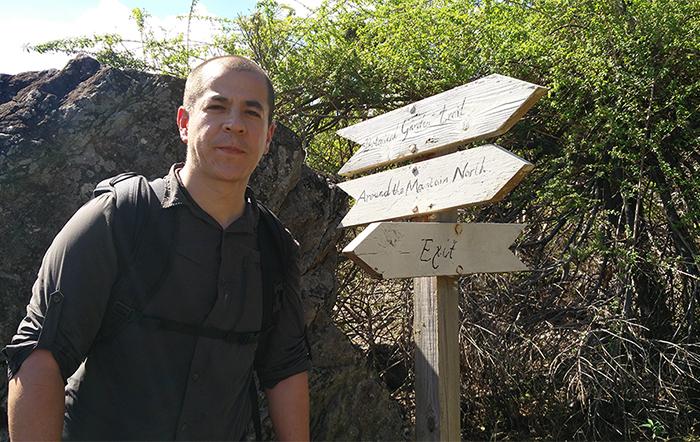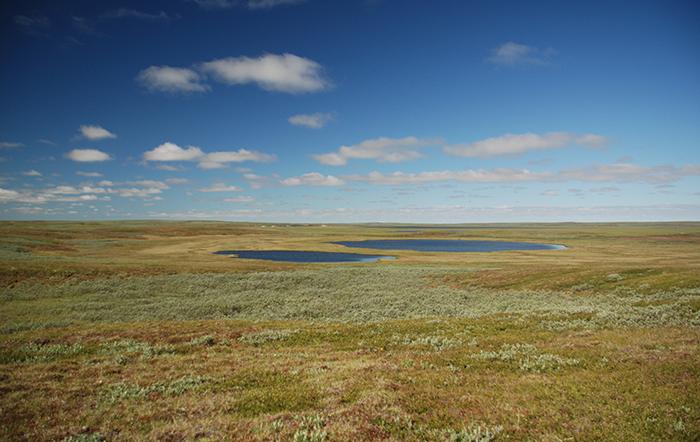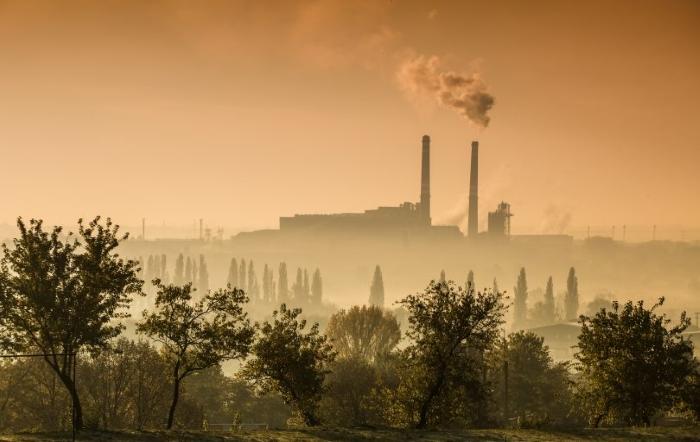The atmosphere’s growing thirst for water is making droughts more severe, even in places where rainfall has stayed the same. New research by Dr Solomon H. Gebrechorkos and Prof Simon Dadson et al in SoGE, published in Nature, finds that this “thirst” has made droughts 40% more severe across the globe.
News
ECR researcher Jesús Aguirre Gutiérrez awarded NERC-IRF Fellowship to understand tropical forests responses to climate change
Jesús Aguirre Gutiérrez has been awarded a new five-year Independent Researcher Fellowship from the Natural Environment Research Council to understand tropical forest responses to global change drivers, working with contacts from around the world including Brazil, Ghana, Mexico, Australia, Costa Rica, and Oxford and Leeds (UK).

Finntopia: what we can learn from the world's happiest country?
In the quest for the best of all societies, Professor Danny Dorling provides insights on his latest book, exploring what can be learnt from Europe's most equitable country and what's made it the world's happiest country for three years running.

Meet Professor Michael Obersteiner, Director of the ECI
From September 2020 Michael Obersteiner will become Director of the Environmental Change Institute, University of Oxford. Prof Obersteiner will assume 80% of the Directorship, working closely with Dr Friederike Otto, who will now step into the role of Associate Director, with oversight of ECI's communications and strategic research direction. Read on to learn about Michael's new role, research interests and hobbies - including plans to paraglide over the Farmoor reservoir.

Dr Hannah Budnitz wins 2020 Royal Town Planning Institute Early Career Researcher Award
Dr Hannah Budnitz was honoured to win this year's Royal Town Planning Institute Early Career Researcher Award for her research into the non-work activities and trips taken by telecommuters. Read why it is important to land use planners to consider the location and accessibility of non-work destinations.

Warming Temperatures are Driving Arctic Greening
As Arctic summers warm, Earth's northern landscapes are changing. Using satellite images to track global tundra ecosystems over decades, a new collaborative study involving the University of Oxford and global institutions across the world, found the region has become greener, as warmer air and soil temperatures lead to increased plant growth.

Bending the curve of biodiversity loss
A new report, published in Nature, identifies two key areas for action to stop global biodiversity loss and 'bend the curve' towards recovery by 2050 or earlier - without jeopardising the achievement of other Sustainable Development Goals. The study calls for bold conservation and restoration efforts, alongside a transformation of the global food system. It forms a core part of WWF's Living Planet Report 2020, and authors include Michael Obersteiner, Director of the ECI.

ECI contributes to WWF's Living Planet Report 2020
Global wildlife populations have plummeted more than two-thirds in less than 50 years, according to a new report from WWF. The Living Planet update comes alongside a study co-authored by more than 40 NGOs and academic institutions, including ECI's new Director Michael Obersteiner, that lays out ways of arresting and reversing nature loss by 2050.

Greenhouse gases hit new record despite lockdowns, UN says
A new report shows concentrations of greenhouse gases in the Earth's atmosphere hit a record high this year, despite an economic slowdown amid the coronavirus pandemic. As CO2 levels increase, so too does global temperature. Friederike Otto comments that society is not yet ready or able to adapt to the weather extremes made more likely and intense by climate change.

Nature-based solutions can help fight climate change, biodiversity loss
A new report from Oxford's Nature-based Solutions Initiative and collaborators including the Environmental Change Institute has found that nature-based solutions are key to reducing climate change impacts such flooding, soil erosion and loss of food production. The report is the first systematic review of the evidence for using nature-based interventions from around the world and investigates nearly 400 scientific studies.

Coronavirus: why aren't death rates rising with case numbers?
Danny Dorling uses government data from England and Wales to explain why coronavirus death rates remain low despite cases rising for two months in his latest article for The Conversation.








